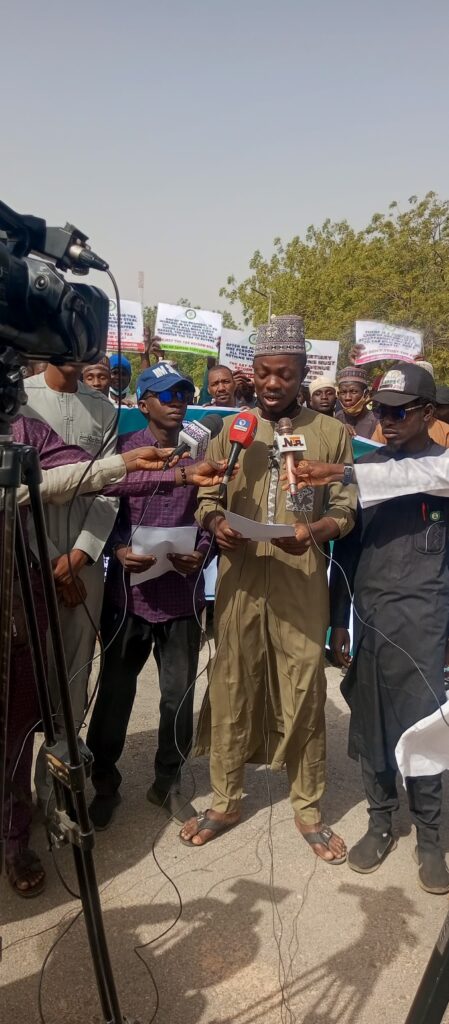
The Coalition of Northern Groups Students-Wing (CNG-SW) has rejected the Federal Government’s proposed Tax Reform Bill, describing it as anti-North and a threat to the region’s educational development.
Speaking at a press conference held at the Federal College of Education (Technical), Gusau, on Friday, the National Secretary of the coalition, Ahmad Abdugaffar, expressed concerns that the reform would adversely affect critical institutions that support education in the North.

“The Tax Reform Bill will have a deteriorating effect on national institutions pivotal to the development of tertiary education. Institutions like the Tertiary Education Trust Fund (TETFund) are at risk of being significantly underfunded,” Abdugaffar said.
He highlighted that TETFund, which is currently funded through 3% of companies’ annual accessible profits, would face a steep reduction in funding under the proposed bill.
“By 2025, TETFund will receive only 50% of the levy, which will increase to 66% by 2027-2029 before returning to 3%. By 2030, TETFund could be extinct, leaving tertiary education in Nigeria underfunded and degraded,” he warned.
Implications for Other Institutions The coalition also raised concerns about the potential impact on the National Information Technology Development Agency (NITDA), an agency promoting digital inclusion and innovation.
“Currently funded by 1% of profits from tech-related companies, NITDA will receive only 20% of the levy by 2025 and 2026, and nothing thereafter. This will cripple its ability to promote digital inclusion and innovation initiatives,” Abdugaffar lamented.

Concerns About Student Loans
The coalition criticized the focus on funding the Nigeria Education Loan Fund (NELFUND), which it argued would lead to unsustainable debt for students.
“NELFUND, which is currently funded by a 1% deduction from taxes and levies collected by the Federal Inland Revenue Service (FIRS), will receive 25% of the levy in 2025-2026, 33% by 2027-2029, and 100% by 2030.
This could pave the way for increased tuition fees and privatization of public tertiary institutions, making education inaccessible to the masses,” Abdugaffar said.
The coalition disclosed that 82,951 students from 45 northern institutions have benefited from NELFUND’s first phase of disbursements. However, only 96 of the 234 tertiary institutions cleared by NELFUND are from the North, with 51 institutions yet to receive disbursements.
Call for Action
The CNG-SW urged the Federal Government to halt the reform process and allow for holistic consultation and amendment before legislation. “We call on northern legislators and governors to thoroughly study the bill and propose practical solutions to mitigate its negative impacts,” the coalition stated.
The group warned that if implemented, the reform could lead to increased tuition fees, saddle students with debt, and ultimately make public tertiary education inaccessible to the masses.
“This mirrors the country’s economic indebtedness and risks creating a generation of financially constrained youth incapable of contributing meaningfully to the economy,” the coalition concluded.










